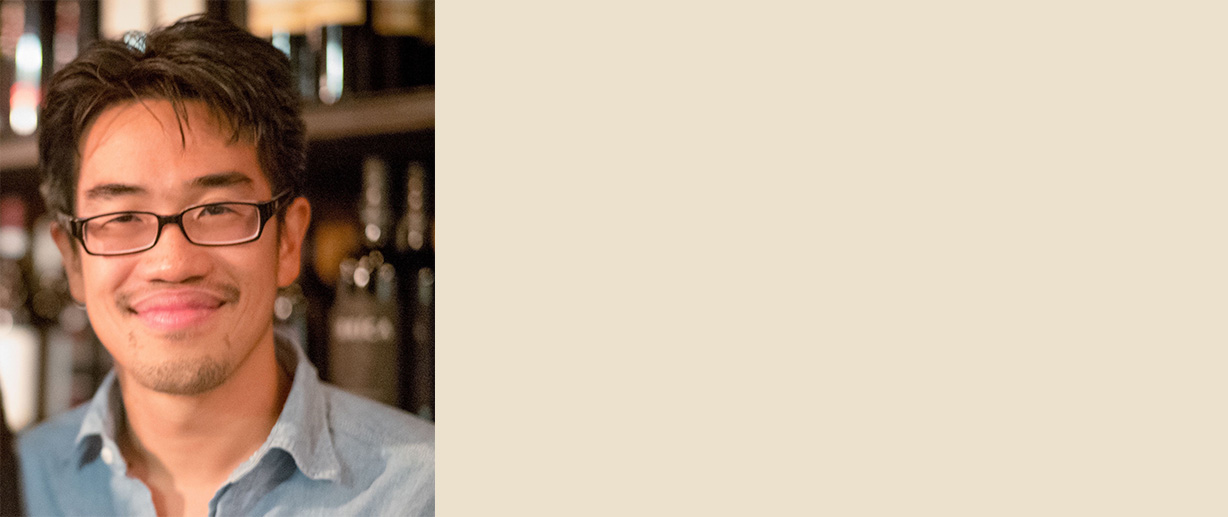Pornsak Pichetshote was on a mission while developing the character Edison Hark, the protagonist in his comic book miniseries “The Good Asian.” Pichetshote describes Hark as being “flawed and conflicted while being sexy and strong.”
Sounds like the description for most protagonists, right? Not quite.
“It’s not at all a novel idea for a protagonist when you compare him to the Caucasian ones in pop culture history, but even today, I have a hard time finding Asian-American protagonists that fit that role,” says Pichetshote, who noted that many Asian-American protagonists have ties to martial arts or mysticism. “So, I knew there was a hole that character was trying to fill, even if it was just for me.”
Pichetshote will participate in a Zoom event to kickoff Wofford College’s observance of Asian American and Pacific Islander Heritage Month. “The Good Asian: A Conversation with Pornsak Pichetshote” will take place 2 p.m. Monday, April 11. The month is traditionally observed in May but the college recognizes it in April because the academic calendar winds down in May.
Pichetshote will discuss themes of racial identity and the struggle for community that’s found in his books “Infidel” and “The Good Asian” as well as how personal views and politics meet in his work. He’ll also talk about the need for more writers to tackle those topics.
Pichetshote describes “The Good Asian” as Chinatown noir. It’s a 1936 detective story that features the first generation of Americans to grow up under an immigration ban directed at them. He examines the structures and tropes associated with the genre while using them to amplify the story he’s telling about working-class Chinese Americans living in the shadow of an immigration ban.
“The Chinese Exclusion Act was something I discovered late in life, and something I couldn’t believe I didn’t know anything about,” Pichetshote says. “That, coupled with my interest in the movies about Asian crime solvers of the 1930s – Charlie Chan, Mr. Moto and Mr. Wong – led me to want to combine those two things and tell a story about an Asian-American detective that acknowledged America’s anti-Asian history. That ambition would lead me to more research to execute the book.”
The story and its illustrations have received many glowing reviews, including one from the Asian Review of Books.
“It’s been so gratifying,” says Pichetshote of the recognition the book series has received. “There’s always been a part of me that’s worried you needed to be Asian-American to respond to ‘The Good Asian.’ And the reviews have shown me you don’t, and it’s been legitimately moving at how passionately non-Asian audiences love the book as well as hearing from AAPI (Asian-American Pacific Islander) audiences saying how much seeing specific nuances in the book means to them.”
The complete schedule of Asian American and Pacific Islander Heritage Month events sponsored by Wofford College’s Office of Diversity, Equity and Inclusion:
April 11
Pornsak Pichetshote: “The Good Asian: A Conversation with Pornsak Pichetshote.” Via Zoom, 2 p.m. Register here.
April 19
Screening of “Hollywood Chinese,” Olin 210, 6 p.m. “Hollywood Chinese” is an award-winning documentary by filmmaker and Asian cultural historian Arthur Dong. It examines how the Chinese have been represented in American cinema.
April 22
Dr. Rosalind Chou, Georgia State University: “The State of Asian America,” McMillan Theater, 3 p.m. Chou, a sociologist, will draw from her research on the myth of the Model Minority, Asian-American sexual politics, and Asian-American college students to discuss contemporary issues in the Asian-American community.
April 25
Dr. Kevin DeLapp, Converse University: “Confucius and Western Modernity,” Olin 213, 6 p.m. DeLapp will explore how Confucius influenced the West during key stages in its cultural modernization. The presentation will recognize the West's intellectual debts to Confucius and offer several cautionary tales about Western appropriations of Confucianism.
